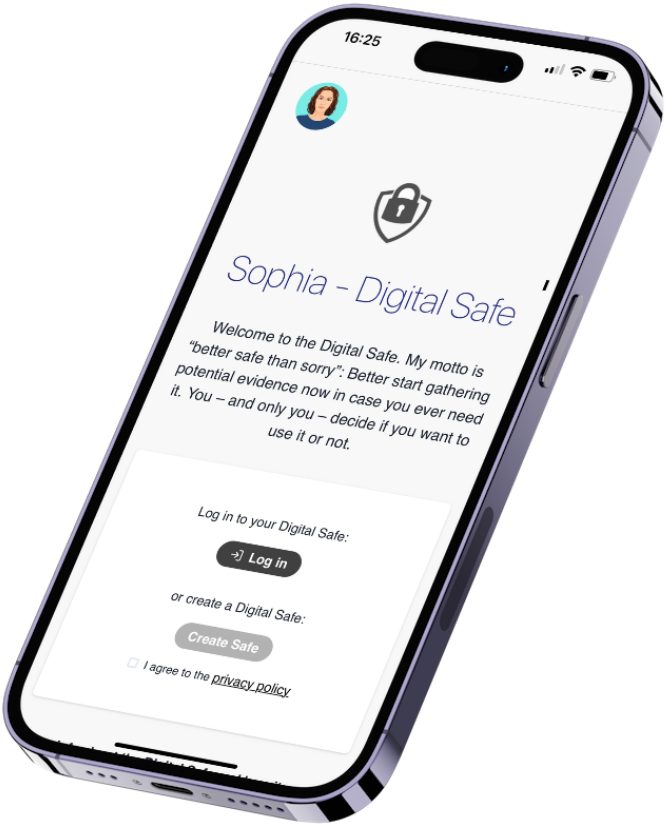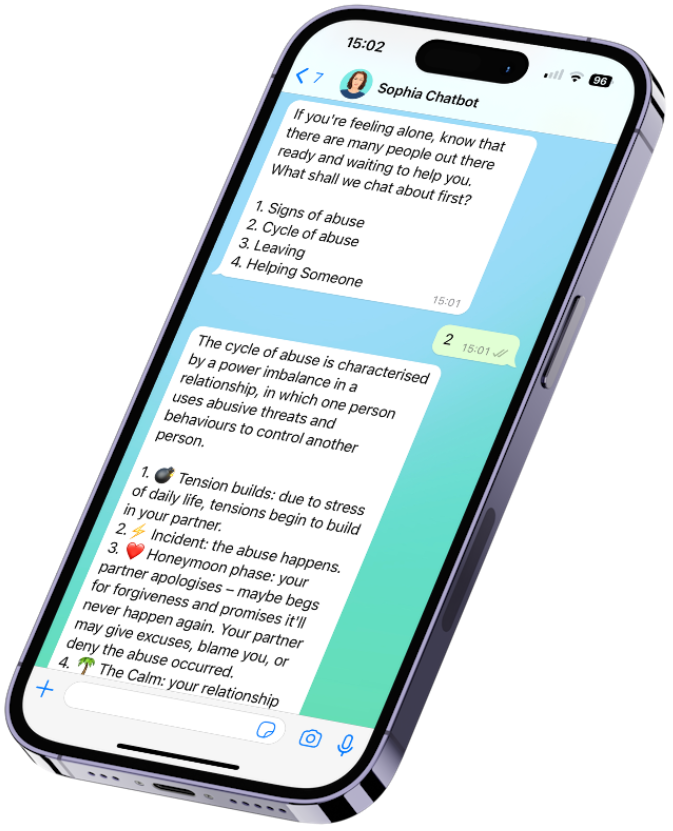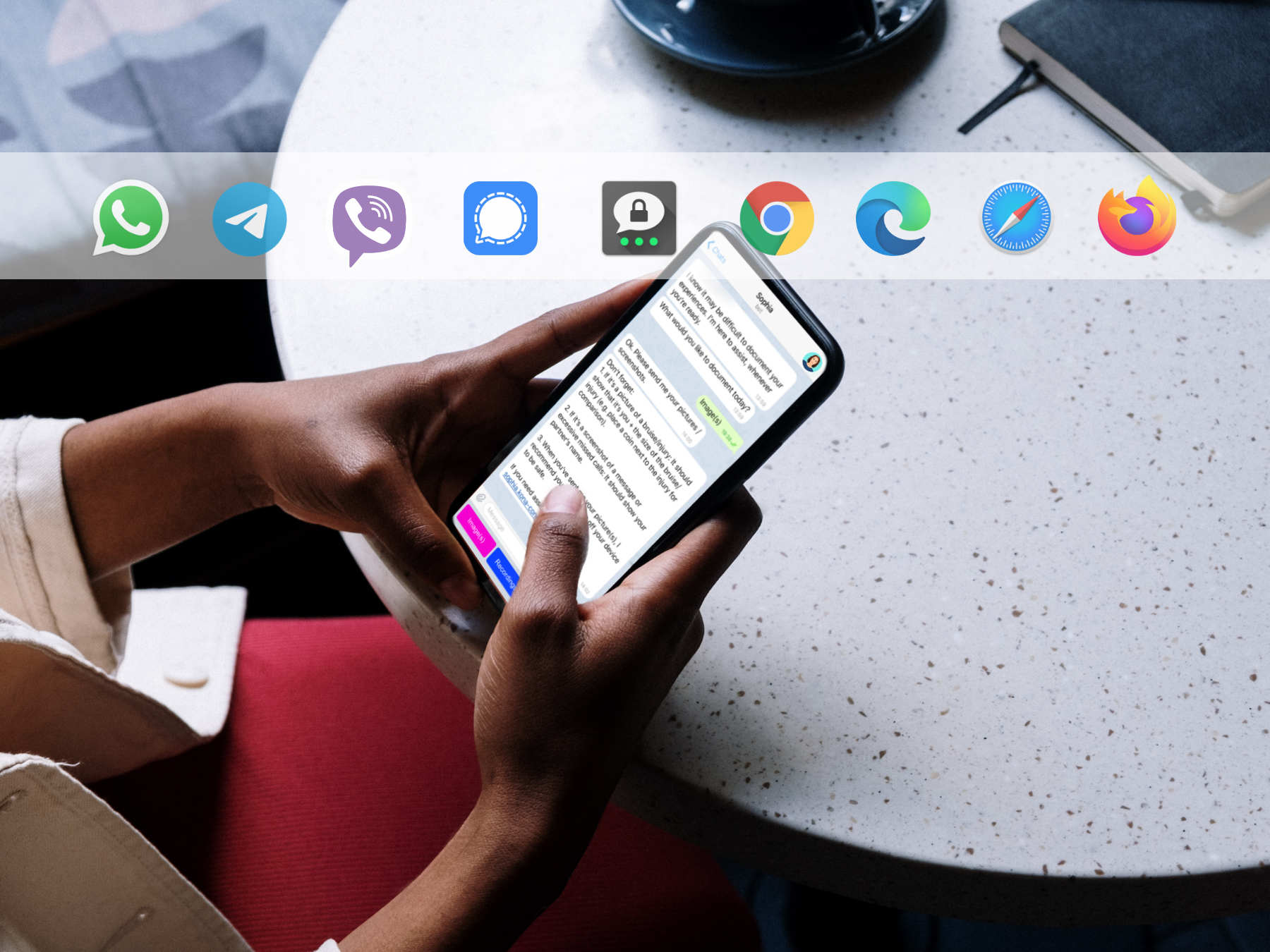Sophia is the first of its kind: a chatbot available 24/7 to anyone suffering from domestic violence who needs assistance. Regardless of location, connecting with Sophia is as easy as chatting to a friend on your phone:
Sophia – The Chatbot
Gather evidence. Access resources. End domestic violence.
How does Chatbot Sophia work?
How to chat to Sophia?


In any browser
type in the address bar:
sophia.chat
In Telegram:
search for
“Sophia Chatbot”
In Viber:
search for
“Sophia Chatbot”
Sophia is designed to be a trustworthy and guiding companion of people in abusive relationships in three key ways (G.A.L.) :
”"For so long, I had no clue whether what I was going through was bad enough to warrant help - and some people in my life actively told me it wasn't. It took many long months to believe that I deserved help, let alone to take action – I can only imagine how much faster I would have gotten help if I'd had Sophia."
– Survivor from Lausanne, Switzerland

First tool of its kind?
While there are a handful of apps on domestic violence, “Sophia” is the first tool of its kind as it leaves no digital trace – as a chatbot accessible through popular messenger apps, there’s nothing to download and the interactions with the chatbot can simply be erased by the user, so there’s nothing for the abuser to find. This is of the utmost importance, since controlling partners often demand access to the survivor’s digital devices.
What’s the issue at hand?
Domestic violence is a deadly pandemic that affects 1 in 3 women, 3 out of 4 children and an estimated 1 in 7 men worldwide.¹ This means anyone reading this text is guaranteed to have more than one friend who suffered or is suffering from an abusive relationship.
From the outside the solution might seem simple: Leave the abuser. The reality, however, is far from that. Most people in abusive relationships cannot or are too scared to leave. Their partner’s manipulation and/or threats to harm them or their children or pets are often as big of a barrier to freedom as physical prison walls.
Survivors often do not know where to turn, and, finding that they lack tangible evidence of the abuse, remain in a vulnerable situation, even once they have left. Amongst other reasons, this is why a large majority of the survivors (60%) never seek help and of those who do, only a tiny fraction (10%) go to the police.² To make things worse, during the Covid pandemic’s lockdown, the usual avenues of seeking help suddenly became inaccessible, as the survivors became trapped at home with the abuser.
To deal with this pandemic of domestic violence, we need for a tool that (1) can reach survivors when they are trapped at home, wherever they are; (2) lowers the threshold for seeking help; (3) empowers survivors to take action, ensuring they stand the best chance of leaving for good. We need to give survivors of domestic violence back the future they deserve.
How is “Sophia” built?
Sophia is developed by a growing number of experts from a diverse range of fields: Law, IT, data privacy, web security, psychology, social work, and computer linguistics as well as in consultation with survivors themselves. Our approach is to ensure global reach with locally tailored resources. This means that the function of uploading potential evidence will be accessible from any place in the world, no matter how remotely located the user is. So too are the general online resources that Sophia guides you to. In addition, by partnering with the local organisations already working locally on domestic violence issues, we will be able to curate the options and rights available to the specific country locations.




